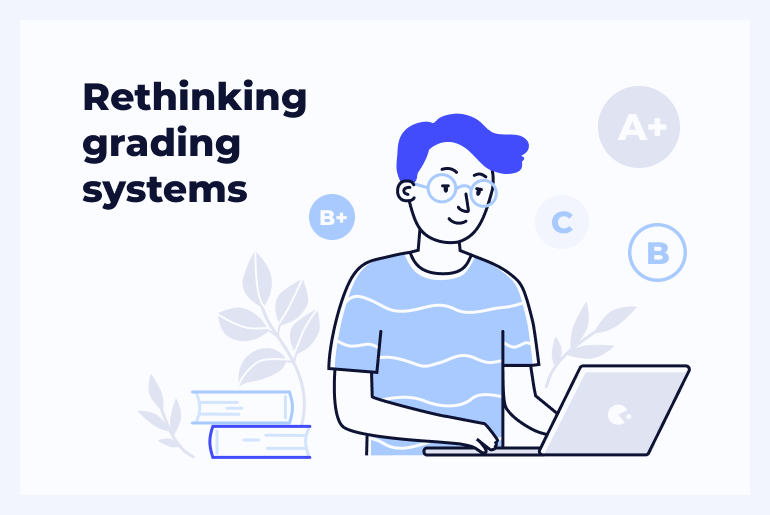
Craig Kemp, a New Zealand born educator located in Singapore shared his opinion with Unicheck on how technology is changing the world of academia.
Craig is known for his vast experience in the classroom, in leadership, and in consulting for over 14 years now. Currently, he is a keynote speaker and an education consultant who promotes digital transformation in learning across the globe.
In this conversation, Craig breaks down the current situation with implementation of technology in the teaching process. The changes in the classroom setting are fundamental, mobile technologies are replacing computer ones, but something remains unchanged – [su_highlight background=”#809df3″]robots can’t replace the human nature of educators[/su_highlight].
One important peculiarity of technologies being a central part of education is that the boundaries of what’s appropriate and what’s not are quite blurry. And that’s where plagiarism in education kicks in.
Unicheck: You’ve been part of the EdTech world for quite some time now. What major changes are you observing in K-12 and higher ed?
Craig: Yes I have been teaching for more than 15 years and in EdTech and EdTech leadership for 10 years – it is an exciting field to be in. Major changes that I observe in my daily role working with schools globally as a consultant are the move from computers and laptops to mobile technology. Devices are getting smarter, smaller and easier to use. When using technology, think is it the right tool for our context – suitability is everything. Mobile devices are, in my opinion, the only way to go now for schools looking for suitable future focussed tools. Educators still react to buzzwords and we are seeing more integration of AR, VR and AI into education which is exciting. We need to focus on what makes our jobs as educators more efficient and effective and how can tools support students to learn easier, better and more effectively.
Unicheck: Is there any chance that virtual convenience of the online learning will ever substitute traditional learning?
Craig: Yes, of course. But I think the human value of a teacher overrides all technology – the human nature of teachers can’t be replaced by robots or technology. I think though that virtual and online tools can help us be more efficient and effective and should of course be utilized as appropriate.
Unicheck: What is happening with a classroom setting? Is this change for good or for bad?
Craig: Classrooms are changing but that doesn’t necessarily impact learning. Teachers and their teaching style have a large impact on student learning and accessing more or less resources, doesn’t necessarily play a part.
Unicheck: What technologies are most likely to impact the learning future? Will a plagiarism checking tool be among them?
Craig: I think the next big change for educators is the rise of wearable technology that can support our learning. Plagiarism is an interesting point – we need to ensure our digital citizenship programs include educating kids on what is appropriate and what is not. Plagiarism is one of these topics.
Unicheck: From your experience, what is the biggest challenge in implementing digital learning solutions to educational institutions?
Craig: In my role as an EdTech consultant, I have the pleasure of working with schools to help them solve their problems. Most schools struggle with strategic planning and implementing programmes that can be sustainable over time. The biggest challenge in this is leadership buy-in and the schools ability to invest in Human Resources. As part of the first stages of the work I do with schools, I do a Human Resources EdTech audit where I talk to the key stakeholders across the school including parents and kids to help inform decision making. Everyone’s voice needs to be heard when developing a strategic plan.
Unicheck: What are the major problems technology helps to solve in the area of education?
Craig: For me it comes down to time and efficiency. If a tool can help me save time as a teacher or leader or help me be more efficient of effective I ALWAYS take a second look. There is a lot of rubbish out on the market so going through it with a fine tooth comb is critical and making sure that you have human resourcing to ask the right questions. As a consultant I can also help schools with this – I know who does a good job and I know who doesn’t. Sometimes saving that extra hundred dollars is not worth it in the long run. You normally get what you pay for.
Unicheck: What is your vision of an “ideal” educational software? What are the must-have features a tool should have in order for you to select it?
Craig: This is hard to answer as it depends on the tool, the context and of course the problem we are trying to solve with a tool. The people and support behind the product are critical. One of my first judges is when I talk to the people in the company and I see if they truly understand education and the problems we face – 9/10 there are no educators behind the company and that is always a red flag for me. I love companies that value the human capacity!




